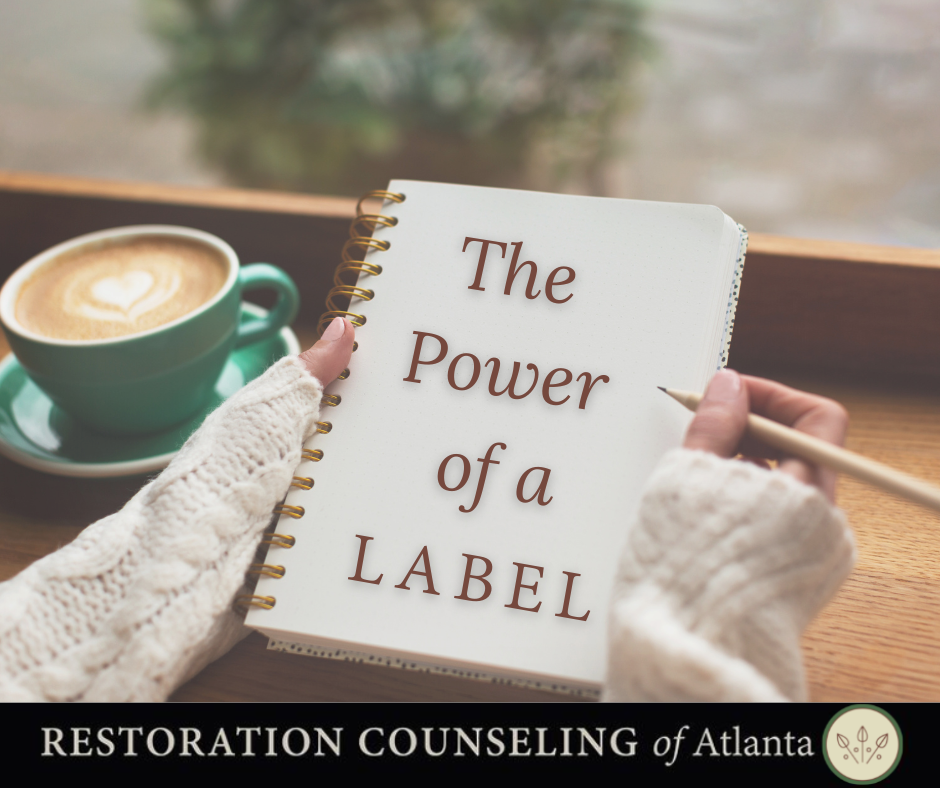Our brains love labels. A label simplifies, organizes, and help us feel like we understand. It is satisfying to put information into one neat box and seal it! So much easier than having to split it up and sort through it later.
The problem is that life is more complex than we want to admit, and things we try to put in boxes don’t fit. Typically, vacations are both relaxing and have stressors. Most foods aren’t “100% healthy” or “100% unhealthy.” Most days aren’t entirely good or bad. When we try to put something complicated into one box, we lose some nuances and can demonstrate that we don’t fully understand the situation.
Labeling a person is especially challenging. I always tell clients that most people aren’t Disney villains. It would certainly be easier if we could write someone off as pure evil, but that is rarely true. For instance, we might never know what a stranger was going through that caused them to have a harsh tone with us at the store. Everyone is made in the image of God while also being sinful. To be truly fair, there typically isn’t only one label to place on another person.
Here are a few examples of how a person can feel to be labeled:
- Labels can help: receiving a diagnosis from a psychiatric hospital can get you the medical assistance you need from your insurance.
- Labels can be inaccurate: has anyone ever labeled you a best friend who you thought was more of an acquaintance?
- Labels can validate: if you feel sick and the doctor says you have strep throat, it can feel validating that your instincts were correct.
- Labels can be incomplete: a mother can accurately be labeled a mom, which is just one of her many roles.
- Labels can be stigmatizing: being labeled “dramatic” can negatively change others’ perceptions.
Labeling ourselves can also be tricky. We are usually our own worst critics and use labels like lazy, stupid, or unlovable. This might be because others labeled us in those ways, and we have started internalizing it.
If you’ve labeled yourself lazy, that might fall into the above categories of inaccurate, incomplete, and stigmatizing. If you’ve gotten home from a busy day at a taxing job and want to lie down and watch TV, labeling yourself lazy will make it more difficult to change your behavior! It is not helpful or motivating to be talked to that way. Validating how difficult the day was and that you made it through and are exhausted is probably a more accurate, complete, and less stigmatizing depiction.
Let’s talk if you are overwhelmed by life and notice that you are putting over-simplified labels on yourself or others! I’d love to help you replace your self-talk with helpful, accurate, validating, complete, and non-stigmatizing language. Please reach out to me at hannah@restorationcounselingatl.com.

![]() Written by Hannah Clark, MA, APC
Written by Hannah Clark, MA, APC
hannah@restorationcounselingatl.com, ext. 122
Roswell and Woodstock locations
Hannah’s philosophy is that counseling is for everyone. Just like we take our cars to get the oil changed, mental health works the same way. The check engine light comes on, and we need to take a look under the hood. Hannah enjoys counseling individuals age 18 and up. She utilizes EMDR therapy to help with trauma and PTSD. She also sees individuals for issues such as grief, depression, anxiety, boundaries, life transitions, and spiritual or emotional abuse. Hannah previously worked for a college ministry and enjoys helping college students and women in (or formerly in) ministry.

